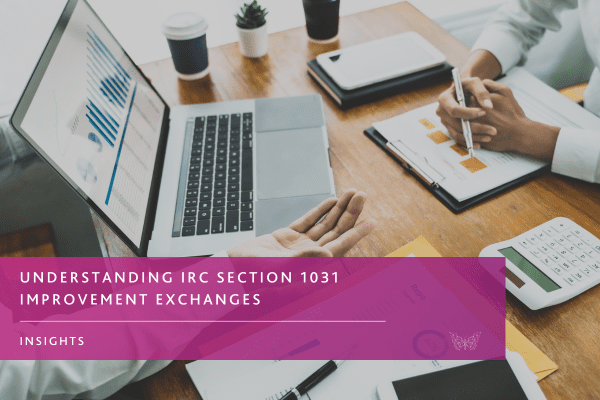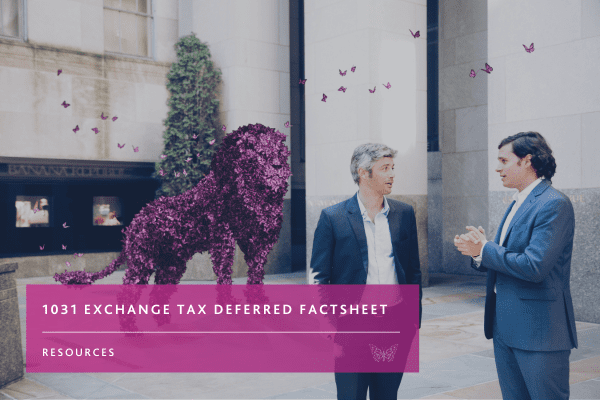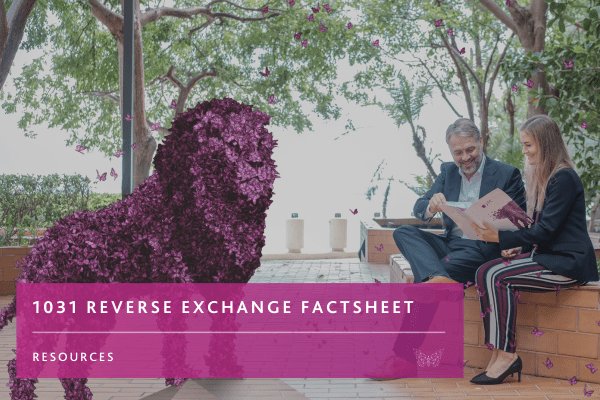IRC Section 1031 allows U.S. taxpayers to defer capital gains and other taxes when they sell business or investment real estate and replace it with like-kind property. 1031 exchanges help businesses grow and allow investors to save more for retirement all while promoting continued economic activities.
Deferred exchanges require a Qualified Intermediary (QI) to hold the sale proceeds during the exchange. Incorrect handling of funds can cause an exchange to fail, triggering a taxable event, making it vital for exchangers to select a QI they trust.
Our experienced team, supported by Certified Exchange Specialists® (CES®), handles every aspect of your exchange. From facilitating forward and reverse exchanges to providing administration services to Delaware Statutory Trusts, we deliver solutions tailored to your unique needs. With our purpose-built technology platform, you’ll have 24/7 access to transaction details, allowing for a secure and informed process.
The Right Solution for Your Exchange
Whether exchanging one property or a portfolio, our clients receive the same care.
Find Your Local Team
Your Experts
JTC’s specialists bring decades of experience in 1031 exchanges.
Frequently Asked Questions
A 1031 exchange allows property owners to defer capital gains taxes by replacing one or more properties to be relinquished with other “like-kind” property. As a Qualified Intermediary, JTC is responsible for properly documenting the transaction as an exchange rather than a sale, and for facilitating the flow of funds within the safe harbor guidelines of IRC Section 1031 and its applicable regulations.
JTC supports all kinds of 1031 exchanges, including forward exchanges, reverse or build-to-suit exchanges, and exchanges involving partial interests such as Tenant-in-Common structures or Delaware Statutory Trusts. Our services are tailored to your specific needs.
We use segregated FDIC-insured accounts, never commingling funds with our operating funds, and implement dual authorization for fund disbursements, ensuring the highest level of security.
Insights from Our 1031 Exchange Specialists
Explore JTC’s expert insights on 1031 exchanges and strategies for successful like-kind property transactions.
Your Experts
JTC’s specialists bring decades of experience in 1031 exchanges.
Insights from Our 1031 Exchange Specialists
Explore JTC’s expert insights on 1031 exchanges and strategies for successful like-kind property transactions.
Insights from Our 1031 Exchange Specialists
Explore JTC’s expert insights on 1031 exchanges and strategies for successful like-kind property transactions.
Your Experts
JTC’s specialists bring decades of experience in 1031 exchanges.
Insights from Our 1031 Exchange Specialists
Explore JTC’s expert insights on 1031 exchanges and strategies for successful like-kind property transactions.
Insights from Our 1031 Exchange Specialists
Explore JTC’s expert insights on 1031 exchanges and strategies for successful like-kind property transactions.
Insights from Our 1031 Exchange Specialists
Explore JTC’s expert insights on 1031 exchanges and strategies for successful like-kind property transactions.
Let’s Bring Your Vision to Life
From 2,300 employee owners to 14,000+ clients, our journey is marked by stability and success.











































